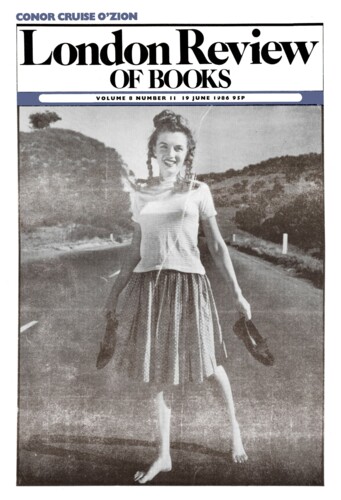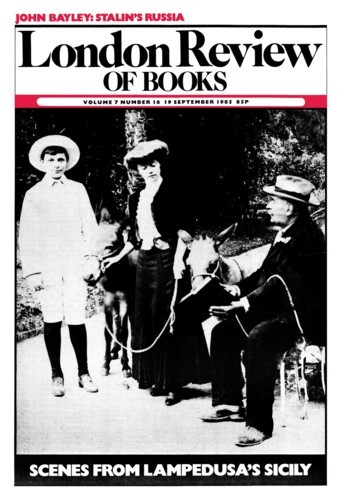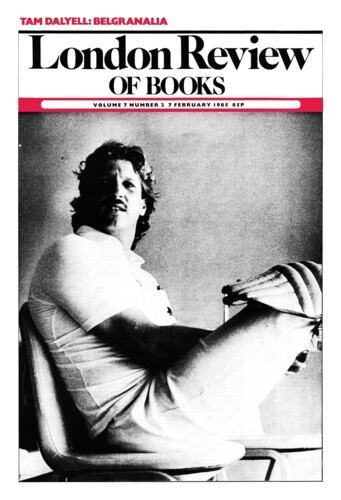Conor Cruise O’Zion
David Gilmour, 19 June 1986
Conor Cruise O’Brien has enjoyed a career of variety and distinction: diplomat, politician, man of letters, an expert on Africa, Irish history and French literature. International affairs have interested him since his UN days in the late Fifties, when his ideas were close to Sartre’s. In a book on Camus published in 1970, O’Brien berated Camus for not supporting Sartre: had he done so, together they ‘would have rallied opinion more decisively and earlier against imperialist wars, not only in Algeria, but also in Indo-China-Vietnam and elsewhere’.



